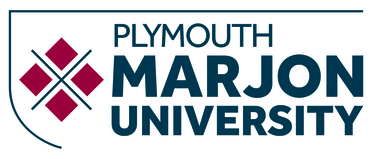Extracurricular Enterprise Activities as a Vehicle for Entrepreneurial Learning: Examining Experiential, Social and Self-directed Learning Outcomes
Preedy, Sarah, Jones, Paul, Duckett, Hilary and Mass, Gideon (2018) Extracurricular Enterprise Activities as a Vehicle for Entrepreneurial Learning: Examining Experiential, Social and Self-directed Learning Outcomes. In: 41st Institute for Small Business and Entrepreneurship Conference, 7th-8th November 2018, Crowne Plaza Hotel, Birmingham.
|
Text
41st ISBE Conference Paper_Preedy.pdf - Accepted Version Download (544kB) | Preview |
Abstract
This paper critically examines the value of extracurricular enterprise activity from a student and educator perspective at United Kingdom (UK) universities. Extracurricular activities are a popular facet of enterprise education and studies note an increase in recent years of provision of extracurricular enterprise activities across European universities (Rae et al., 2012; Lilischkis et al., 2015). The research aims to examine the benefits of participation in extracurricular enterprise activities and in particular the benefits to students’ entrepreneurial learning processes. Thus, this research addresses the following research questions: 1. What benefits, learning or otherwise, may be attainable from Higher Education (HE) student engagement in extracurricular enterprise activities? 2. How may engagement in extracurricular enterprise activities enhance students’ entrepreneurial learning processes? This paper addresses the conference theme – ‘Research, policy and practice: Collaboration in a disparate world’ by examining the advancement of individuals’ entrepreneurial learning processes through engagement in collaborative activities. This study adopted an inductive methodological approach to explore themes emergent from the data rather than to predict or explain through hypotheses (Berger and Luckmann, 1967; Booth et al., 2009). A semi-structured survey (n=55), administered to students at a national conference themed on extracurricular enterprise activity, contained qualitative questions regarding what types of extracurricular enterprise activities respondents had participated in and what they felt they had gained from participation. A total of 26 in-depth interviews were also conducted, 23 with student participants and three with enterprise educators, to ascertain the perceived value of participation in extracurricular enterprise activities to students’ entrepreneurial learning processes. In relation to research question one, it was found that each participant was unique in the combination of benefits they gained from engaging in extracurricular enterprise activities but there were commonalities identified under the six themes of: skills development, knowledge acquisition, personal growth, development of social capital, venture creation/growth and enhanced employability. These benefits ranged from intrinsic, such as a growth in self-belief, to extrinsic such as an enhanced CV. They also ranged across the spectrum of the venture creation process from ideation to business registration. In relation to research question two, the data was reviewed in accordance with established theoretical framing for the examination of entrepreneurial learning processes; experiential and social learning theory (Taylor and Thorpe, 2004; Politis, 2005; Cope et al., 2007; Pittaway et al., 2015). It was found that prior links posited in the literature between entrepreneurial learning and experiential learning were supported in the data but the role of reflection was found to be diminished as limited opportunities to reflect upon learning may hinder abstract conceptualization processes. Links already posited in the literature between 2 social learning theories and entrepreneurial learning were also confirmed; entrepreneurial learning was seen to be enacted alone but also in groups whereby participants observed others to enhance their entrepreneurial learning, modelling behaviours, and collaborating in a ‘community of practice’ (Lave and Wenger, 1991). For policy and practice, findings contribute to ongoing debate regarding the value of enterprise education and in particular extracurricular activities (Lilischkis et al., 2015; Johannisson, 2016; Arranz et al., 2017; Nabi et al., 2017). This research contributes significant empirical knowledge to the limited understanding of how extracurricular enterprise activities may positively enhance students’ entrepreneurial learning processes. Prior studies have focused upon mapping the extracurricular enterprise activities available at universities and gathering an educator perspective of potential benefits (Rae et al., 2012; Lilschkis et al., 2015; Vanevenhoven and Drago, 2015). This research moves beyond mapping activities to contribute empirical evidence of how HE students’ entrepreneurial learning processes may be enhanced by engagement in extracurricular enterprise activities and also offers valuable insight into the student perspective of these activities. This research also has value in enhancing the theoretical conceptualisation of entrepreneurial learning within a HE setting. A conceptual framework confirms the importance of the experiential and social learning activities afforded by participation in extracurricular enterprise activities but also provides a novel contribution in positioning the self-directed nature of these activities as key to developing students’ autonomous learning capabilities. Such findings have important implications for enterprise educators in their design and delivery of extracurricular enterprise activities.
| Item Type: | Conference or Workshop Item (Paper) |
|---|---|
| Keywords: | extracurricular, enterprise education, higher education, entrepreneurial learning, self-directed learning |
| Depositing User: | Ms Kerry Kellaway |
| Date Deposited: | 30 May 2019 08:14 |
| Last Modified: | 30 May 2019 08:22 |
| URI: | https://marjon.repository.guildhe.ac.uk/id/eprint/17408 |
Actions (login required)
 |
Edit Item |

